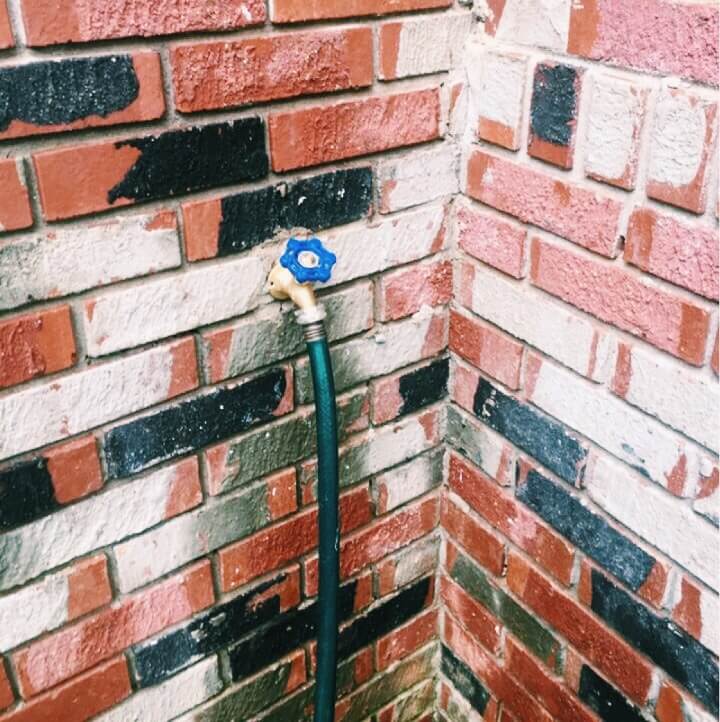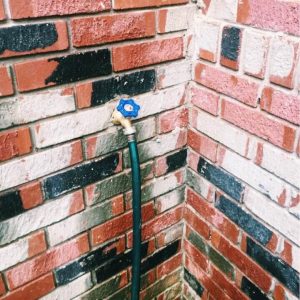Let’s talk about galvanic corrosion. There are lots of metals out there that won’t rust on their own, which is great–it allows for the use of copper to carry water in pipes, and it keeps your kid’s aluminum bike from falling apart after they left it out in the rain… again. But rust is only one type of corrosion, and no metal is completely immune to all types.
Why Is My Garden Hose Stuck to My Faucet?
The most common type of corrosion encountered by plumbers is called galvanic corrosion. Galvanic corrosion is an electrochemical process that occurs when two dissimilar metals come into electric contact with each other, and the results aren’t pretty.
Ever had a hose stuck on the spigot that just wouldn’t come loose, even with a pipe wrench? You were probably dealing with the results of galvanic corrosion.
Some garden hoses are produced with aluminum fittings at each end. On the surface, this seems like a great idea–aluminum doesn’t rust, so it should last forever! But remember, rust is only one of the types of corrosion that can destroy metals, and thereby parts of your plumbing system.
Hose bibbs (outdoor faucets) are generally made from brass, which is safe to use in contact with copper because it itself is an alloy of copper and zinc and is therefore not dissimilar. You can buy a garden hose with brass or even plastic connections and do just fine, but beware of aluminum!
A Bad Combination Leads to Galvanic Corrosion
When you put an aluminum hose connection on a brass bibb, you create a reaction: galvanic corrosion. Neither one of these metals will corrode on its own in contact with water, but when they’re put together, you’re in trouble. The aluminum acts as an anode, and the brass acts as a cathode; this creates an electron flow every time the two metals are in contact with an electrolyte–or every time you run water through your hose.
The aluminum will start to literally dissolve, and wherever it’s in direct contact with brass, it will reform itself and fuse to the other metal. Just like that, your hose is stuck–and, if undealt with, it will eventually start to further melt away and leave you with a hose that leaks like a sieve and still won’t come loose.
The moral of the story? Don’t put dissimilar metals in contact with each other–especially not in the presence of water! If you’re in the market for a new hose, make sure you buy one with brass connections at each end–and check the metal on your sprayer, too! If you already have a hose with aluminum fittings, throw it away. And if you can’t get it loose to throw it away, give us a call.
*It does seem like the logical solution to this problem would be to use a wrench, but don’t do it. Outdoor hose faucets may sometimes seem to be solid as a rock, but the fact of the matter is it’s still being held in place mainly by the (relatively soft) copper pipe it’s attached to–and you might as well put that wrench right on the pipe and crank it for all the good it’ll do you.
Schedule a Plumber
Schedule a plumber if you need assistance, we are happy to help.
Read our reviews to learn more about us or our plumbing services.

